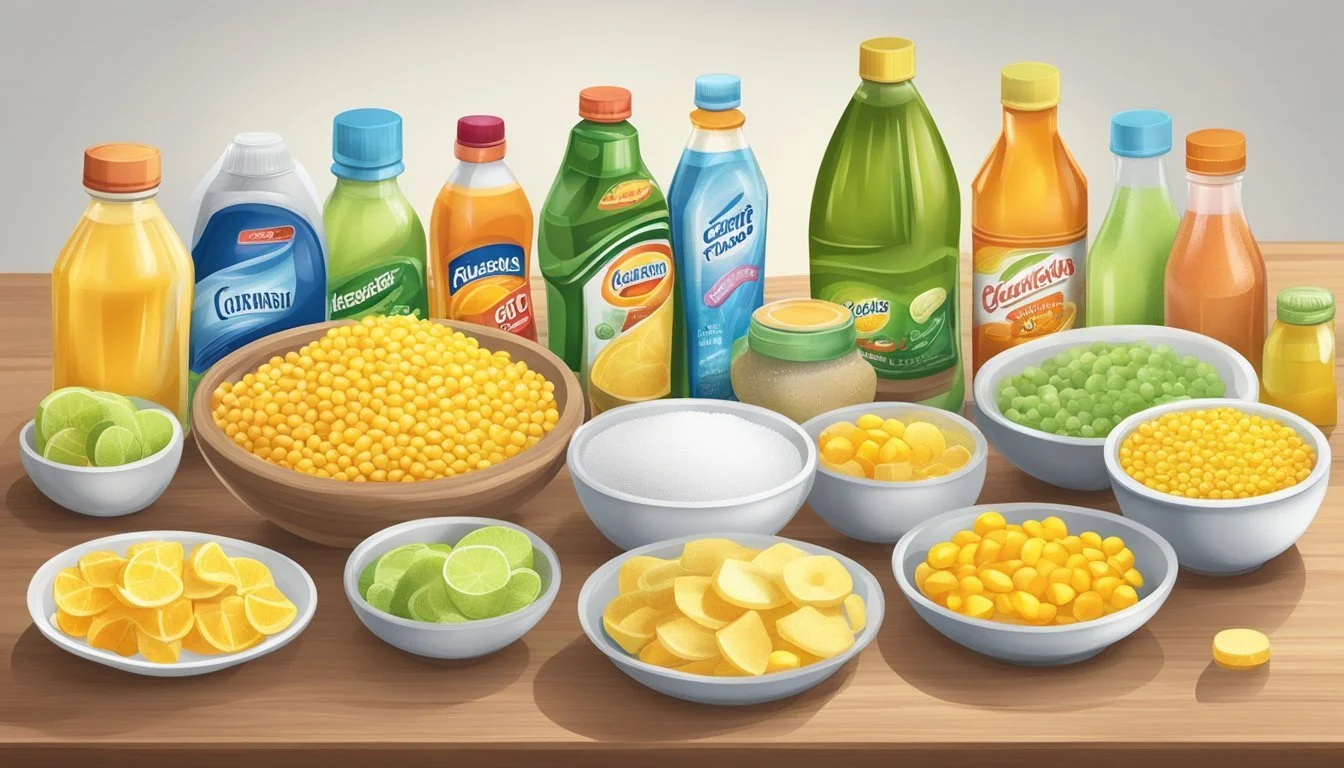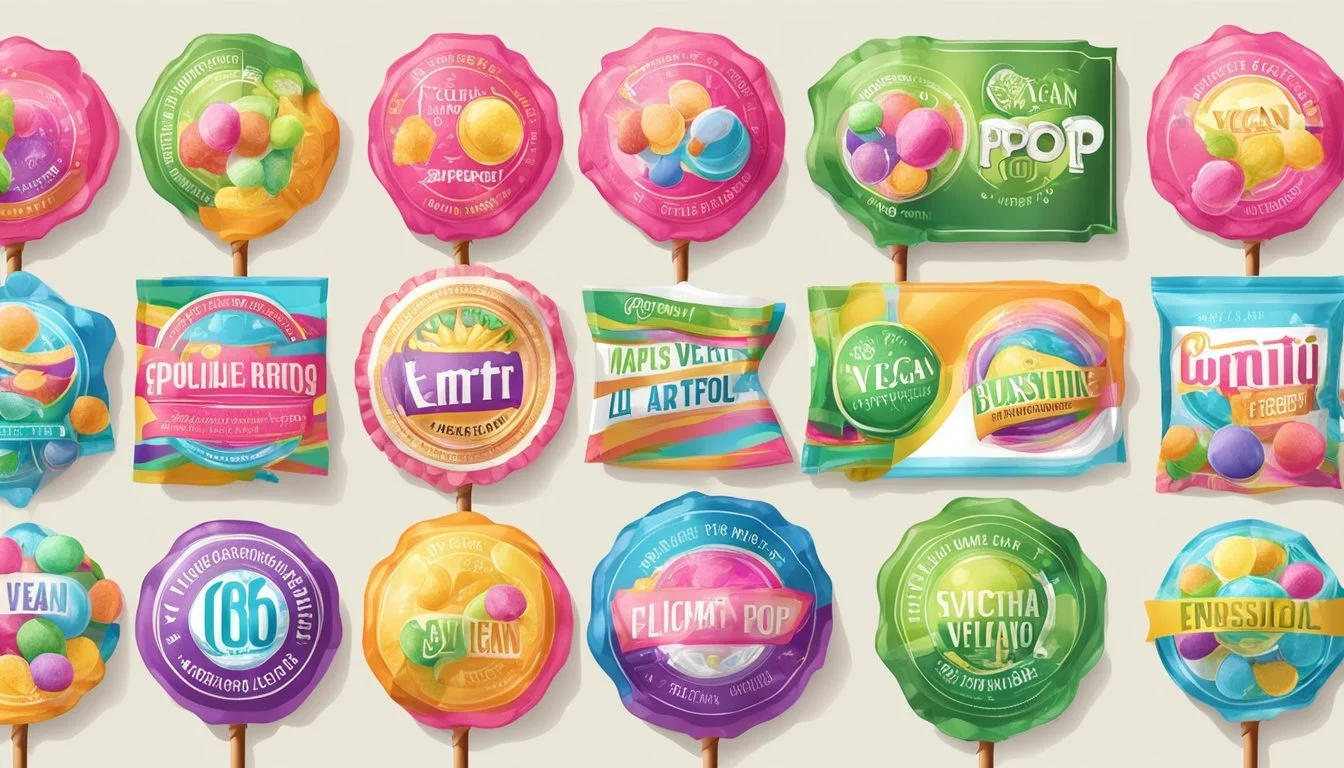Are Blow Pops Vegan?
Unwrapping the Truth About Their Ingredients
Navigating the realm of confectionery as a vegan can often present a challenge with many candies containing ingredients of animal origin or those that are ambiguous in their sourcing. Blow Pops, the iconic lollipop with a gum center, are a popular treat among many, but for those following a vegan lifestyle, the question of their suitability is of particular importance.
The vegan status of Blow Pops has been a topic discussed by various vegan and food-focused platforms. These discussions often highlight key ingredients such as glycerin and gum base, which can be derived from either plant or animal sources. While PETA has recognized Blow Pops as vegan-friendly, the uncertainty arises with these components, leaving a gap that could only be filled by transparency regarding their derivation.
Candy enthusiasts seeking vegan options might find solace in the fact that many sources point towards Blow Pops being a viable choice within the vegan diet. However, given the concerns over certain ingredients, individuals interested in maintaining a strictly vegan diet might seek further clarification on the sourcing of these ingredients before indulging in this sweet treat.
What Makes Candy Vegan?
When evaluating if a candy is vegan, it is crucial to consider the ingredients and processing methods. Vegan candy should not contain any animal products or by-products, nor should it be processed with equipment or substances derived from animals.
Defining Vegan Candy
Vegan candy is characterized by the absence of all animal-derived ingredients. This includes meat, dairy, honey, and other substances obtained from animals. For candy to be vegan, it must also not be processed using any animal products, such as bone char filtration, which is commonly used in sugar refining.
No Dairy: Dairy products like milk or butter are commonly found in chocolate and creamy candies.
No Gelatin: Gelatin, derived from animal bones and connective tissue, is often used as a gelling agent in gummy candies.
No Honey: Honey, a sweet substance produced by bees, is a non-vegan sweetener found in some candies.
No Shellac: Shellac, used as a glazing agent, is secreted by the female lac bug.
No Carmine: Carmine, a red dye made from crushed cochineal insects, is used in red or pink-colored candies.
No Beeswax: Beeswax, used for texture or as a glazing agent, is made by bees.
Common Non-Vegan Ingredients in Candy
There are several ingredients commonly found in candies that are not vegan-friendly:
Dairy
Milk products: Often found in chocolate, creamy textures, or fillings.
Lactose: A sugar derived from milk, sometimes used in candy as a sweetener.
Gelatin
A gelling agent used primarily in gummy and jelly-like candies.
Honey
Sometimes used as a natural sweetener in place of sugar.
Carmine
Red dye used for coloring in various candies.
Shellac
A glossy finish applied to candies that gives them a shiny appearance.
Bone Char
Used in refining sugar to give it a pure white color.
Beeswax
Used to prevent candies from sticking and to enhance texture.
Candies that avoid these ingredients and use alternative sources like plant-based gels, natural colors, and organic unrefined sugars are considered vegan.
Blow Pops Ingredient Analysis
In the analysis of Blow Pops ingredients, one finds that this popular candy shows a complex relationship with vegan criteria. Discrepancies in the vegan status of Blow Pops arise due to certain controversial ingredients.
Blow Pops Composition
Blow Pops consist of a lollipop shell with a bubble gum center. The primary ingredients include:
Sugar: Refined white sugar, which may be processed with bone char.
Gum: A non-digestible component for the gum center.
Corn Syrup: A sweetener derived from corn.
Citric Acid: Used for flavor and as a preservative.
Additionally, food colors and artificial flavors are standard inclusions. It should be noted that the candy does not contain gelatin, honey, dairy, or eggs, which are common animal-derived ingredients that are not vegan-friendly.
Vegan Concerns with Blow Pops
The vegan status of Blow Pops is most controversial due to the sugar used. While not an animal product itself, the refining process for sugar often involves bone char, an animal-derived product. This makes sugar a point of contention among vegans.
Moreover, concerns arise from glycerin and gum base components:
Glycerin: It can be derived from animal fats, although plant sources are also common.
Gum Base: Typically processed with additives, which may include glycerin or other animal derivatives.
While Charms, the manufacturer, does not explicitly list animal products as an ingredient, cross-contamination with milk and soy is a possibility due to shared processing facilities. This potential for cross-contamination can impact the vegan status for some individuals.
The analysis suggests that while Blow Pops do not contain overt animal products in gelatin, dairy, eggs, or honey, the use of refined sugar and ambiguity around the sourcing of glycerin and gum base can make them unsuitable for some vegans.
Comparison with Other Popular Candies
In examining the vegan status of popular candies, it becomes apparent that there is a significant distinction between brands that explicitly cater to vegans and those that are inadvertently free of animal-derived ingredients.
Vegan Versus Non-Vegan Candy Brands
When individuals explore candy options, they encounter both vegan and non-vegan brands. For instance, Skittles, Sour Patch Kids, and Twizzlers all offer mainstream candies that are devoid of animal-derived ingredients, thus making them suitable for a vegan diet. On the other hand, certain candies like Charms Blow Pops present a contrasting case. Despite the absence of gelatin, Charms Blow Pops are not vegan because the refined sugar used in them is filtered with bone char, a cattle industry by-product.
Accidentally Vegan Candies
Several candies that are not marketed as vegan are free from animal products and can be classified as "accidentally vegan." Candies such as Swedish Fish, Smarties, and Airheads typically do not contain milk, eggs, gelatin, or other direct animal derivatives. Dots and Jolly Ranchers are also part of this category. However, it is crucial for vegans to be vigilant as formulations can change, and what may be vegan at one point can include animal-derived ingredients later.
Skittles: Vegan-friendly
Sour Patch Kids: Vegan-friendly
Swedish Fish: Vegan-friendly
Smarties: Vegan-friendly
Jolly Ranchers: Vegan, but consistency is key in checking ingredients
Laffy Taffy: Contains eggs, non-vegan
Nerds: Some are vegan, some contain carmine
Charms Blow Pops: Not vegan due to refined sugar processing
Airheads: Vegan-friendly
Dots: Vegan-friendly
Sour: Broad term, check individual brands
Twizzlers: Vegan-friendly, but always check the label as ingredients can change
For those preparing for festivities like Halloween, a selection of these accidentally vegan candies can offer a compassionate touch to the celebration.
Vegan Labeling and Certification
Identifying vegan-friendly products is straightforward when labels and certifications are clear and trustworthy. Consumers rely on this information to make informed decisions aligned with their values.
Importance of Labels for Vegan Products
Labels serve as a crucial tool for individuals seeking vegan products. A vegan label indicates that an item is dairy-free, contains no animal-derived ingredients such as honey, eggs, or gelatin, and also avoids by-products like bone char, commonly used in sugar refining. Strict vegans rely on these labels to avoid all animal products and by-products in both their diets and everyday product use.
Certifications and What They Mean
Various organizations offer certifications for vegan products, each with its own set of criteria. Becoming certified typically involves a detailed process to ensure the product meets vegan standards. Here is a list of notable certifications and what they signify:
PETA's Bunny Logo: Symbolizes cruelty-free and often overlaps with vegan-friendly products.
Certified Vegan Logo: This confirms the product is animal-free, with no animal testing and no animal ingredients or by-products.
Consumers should look for these labels and certifications on products to ensure they align with vegan standards.
Alternatives to Blow Pops for Vegans
For vegans seeking Blow Pop alternatives, the market offers a variety of vegan-friendly candies. These options cater to the desire for a sweet treat without any animal-derived ingredients.
Vegan Candy Alternatives
Vegan candy alternatives come in many forms, from lollipops to chewy candies. Vegan-friendly brands often ensure that even the coloring and flavoring agents are plant-based. Below is a list of some commercially available vegan candies:
Lollipops: Organic and natural brands often offer vegan lollipops with natural fruit flavors.
Dark Chocolate: Select dark chocolates are vegan, containing cocoa, cocoa butter, sugar, and, occasionally, soy lecithin.
Vegan Chocolates: Some companies specialize in vegan chocolates, using alternatives like almond milk or rice milk.
Gummies: Agar or pectin can replace gelatin in gummy candies, making them suitable for vegans.
Chewy Candies: Look for items such as Fruit by the Foot and Fruit Roll-Ups, which may be vegan, but it's important to check their ingredient lists for potential animal-based additives.
Homemade Vegan Candy Options
Crafting homemade vegan candy provides complete control over the components used in the confectionery process. Here are a few suggestions:
Fruit Leathers: Using puréed fruit and sugar, one can create roll-ups or fruit leathers that are 100% vegan.
Vegan Chocolate Treats: With cocoa powder, coconut oil, and a vegan sweetener, it's possible to make various homemade chocolate candies that satisfy vegan standards.
Lollipop Alternatives: By combining sugar, corn syrup, and natural flavorings, vegans can make their own lollipops without any animal derivatives.
The Impact of Diet Choices on Candy Selection
Navigating the confectionery world as a vegan involves examining the ethical impact of ingredients and considering the health implications of products consumed. Candy choices must align with a vegan diet which strictly avoids animal ingredients, favoring plant-based options instead.
Ethical Considerations of Veganism
When vegans choose candies, they must ensure that these sweets do not contain animal-derived ingredients. Common non-vegan ingredients to avoid include gelatin (often found in gummy candies), confectioner's glaze (made from secretions of the lac bug), and some food colorings derived from insects. Vegans also scrutinize sugar sources; bone char—a byproduct of the cattle industry—is sometimes used to refine sugar, making it a point of contention. Candy brands that ethically source their sugar without animal bone char are considered suitable for a vegan diet.
Non-Vegan Ingredients to Watch Out For: gelatin, confectioner's glaze, certain colorings, and bone-char-refined sugar.
Health Aspect of Vegan Candy Consumption
Vegan candies, while cruelty-free, can still be sugary and should be enjoyed in moderation. From a health perspective, vegans often seek candies with less refined sugar and those that potentially offer some nutritional value, like natural fruit juices or additional protein sources. The market now offers a variety of vegan candies featuring protein fortification to cater to health-conscious consumers. These treats balance the indulgence of a sweet tooth with the utilitarian need for protein in a vegan diet.
Vegan Candy Health Notes: Lower in refined sugar, may include natural juices or protein fortification. Offer a balance of enjoyment and nutrition.








